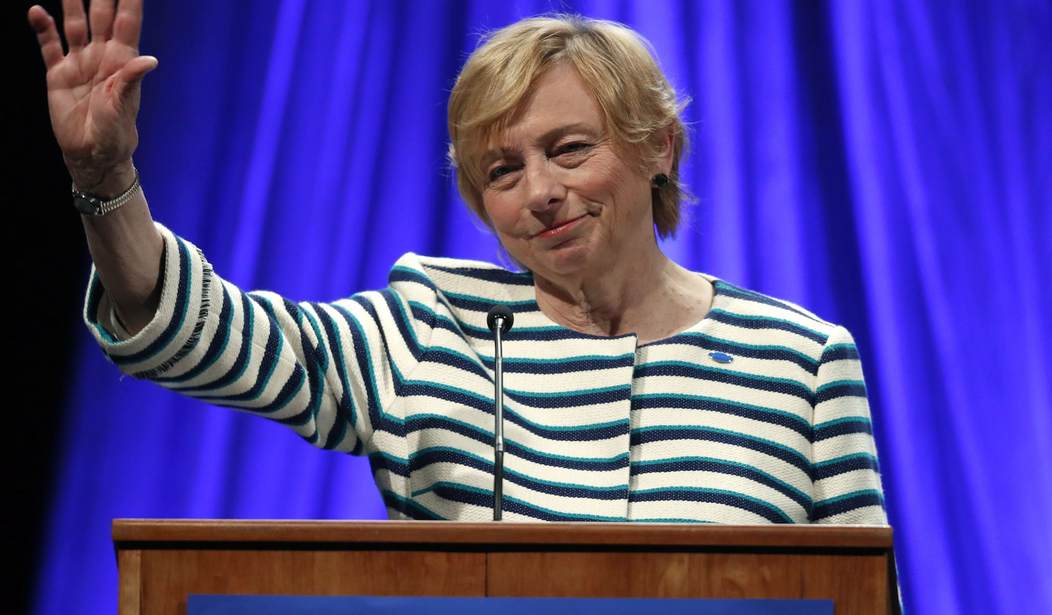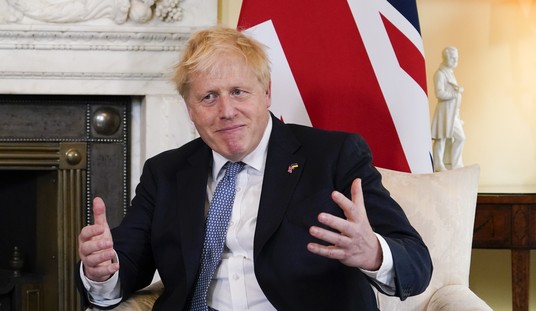Can you imagine President Joe Biden uttering these words in a national address that every American would stop whatever he or she was doing in order to hear the message:
And so, in this poignant hour, I ask you to join with me in prayer: Almighty God: Our sons, pride of our Nation, this day have set upon a mighty endeavor, a struggle to preserve our Republic, our religion, and our civilization, and to set free a suffering humanity. Lead them straight and true; give strength to their arms, stoutness to their hearts, steadfastness in their faith …
And for us at home — fathers, mothers, children, wives, sisters, and brothers of brave men overseas, whose thoughts and prayers are ever with them — help us, Almighty God, to rededicate ourselves in renewed faith in Thee in this hour of great sacrifice.
Many people have urged that I call the Nation into a single day of special prayer. But because the road is long and the desire is great, I ask that our people devote themselves in a continuance of prayer. As we rise to each new day, and again when each day is spent, let words of prayer be on our lips, invoking Thy help to our efforts.
If you are of a certain age, you likely instantly recognized those paragraphs as coming from President Franklin D. Roosevelt’s national prayer radio address on the first night of the D-Day invasion of Europe that ultimately led to the Allied victory in World War II, a victory made possible by American arms, courage and sacrifice.
But inviting Americans to join them in prayer to the Christian God and summoning greater faith in Him is not how many American leaders govern as the nation confronts the Covid crisis. Take, for example, Maine’s Gov. Janet Mills, who recently “expanded” her prior executive order limiting how many Main-ahs can attend indoor worship services together:
a. From March 26, 2021 through May 23, 2021: 50% of permitted occupancy, 5 persons per 1,000 sq. ft., or 50 persons, whichever is greatest;
b. May 24, 2021 and thereafter: 75% of permitted occupancy, 5 persons per 1,000 sq. ft., or 50 persons, whichever is greatest.
In other words, no more than 50 people can gather together to worship the God to whom FDR encouraged the entire nation to pray. There may be 1,000 or 2,000 congregants in a church, but no more than 50 of them can gather together for worship. Religious worship is clearly not considered even remotely essential.
Under the new Mills order, fewer than 10 of Maine’s 141 Catholic churches would be able to admit more people to Mass, despite many worship spaces exceeding 20,000 square feet in size, the National Catholic Reporter (NCR) said.
No wonder Maine’s bishop, Robert Deeley, declared, according to the NCR, that “this ruling is unacceptable and does nothing to provide relief to our parishes and parishioners. Many Maine Catholics who were frustrated by the previous limits are now perplexed and upset.”
Maine Protestants were no less angered by Mills’ actions, with Calvary Chapel, an evangelical congregation in Orrington that unsuccessfuly challenged the governor’s original decree in federal court last year, refiling it in response to the latest revision.
“For the second time, Calvary Chapel prays to this court to do what the Constitution demands (and has demanded since March 2020, 11 months ago), enjoin the governor from enforcing her discriminatory COVID-19 restrictions that impose draconian and unconscionable restrictions on religious worship services while exempting myriad secular businesses and gatherings from similar restrictions,” the church said in its motion before the U.S. District Court for Maine.
“It is the language chosen by our governor’s order that reveals the Christian church is in fact being targeted and discriminated against. Our state government has told the church that it is nonessential. I disagree in the strongest terms. We are among the most essential things that must remain open,” Pastor Ken Graves said in a statement issued by Liberty Counsel, the public interest law firm representing Calvary Chapel.
“Wiser governments in the past actually looked to the churches to gather and pray and to pool their resources in times of crises. The government has told the church that it is irrelevant and that it offers nothing. I reject that. We are not irrelevant, and we have more to offer than our governor apparently realizes. The government wrongly presumes to have the authority to violate our constitutionally guaranteed and God-given rights to freedom of religion and peaceful assembly,” Graves continued.
Besides the regular congregants of Calvary Chapel, the victims of Mills’ one-size-fits-all bureaucratic decree are participants in the church’s highly successful Calvary Residential Discipleship (CRD) program for those struggling with addictions.
The CRD program is limited to 48 participants, who are required to attend weekly church services. That means under Mills’ order, the rest of the congregation and all but two of the seven staff members are barred from attendance.
As Liberty Counsel notes, worshipping with regular congregants is an important facet of the CRD program: “They can meet for substance abuse counseling that does not involve Bible studies and worship, but as soon as they worship, the assembly is illegal.”
Calvary Chapel lost the first time it challenged Mills, but the outcome almost certainly will be different this go-round, thanks to several intervening Supreme Court decisions.
Beginning with the Nov. 25, 2020, Brooklyn Diocese decision, the High Court has since struck down executive orders issued by the governors of New York, California, and Nevada that singled out worship services for harsher treatment than big-box stores, liquor stores, and other commercial entities.
Mills should take note of an observation in Brooklyn Diocese by Justice Neil Gorsuch:
No apparent reason exists why people may not gather, subject to identical restrictions, in churches or synagogues, especially when religious institutions have made plain that they stand ready, able, and willing to follow all the safety precautions required of ‘essential’ businesses and perhaps more besides.
The only explanation for treating religious places differently seems to be a judgment that what happens there just isn’t as “essential” as what happens in secular spaces.
Indeed, the Governor is remarkably frank about this: In his judgment laundry and liquor, travel and tools, are all “essential” while traditional religious exercises are not. That is exactly the kind of discrimination the First Amendment forbids.
Governors, you’ve been warned.
Mark Tapscott is an award-winning investigative journalist who covers Congress for The Epoch Times, and is founder and editor of HillFaith, an apologetics ministry sharing the Gospel of Jesus Christ with congressional aides on Capitol Hill.










Join the conversation as a VIP Member